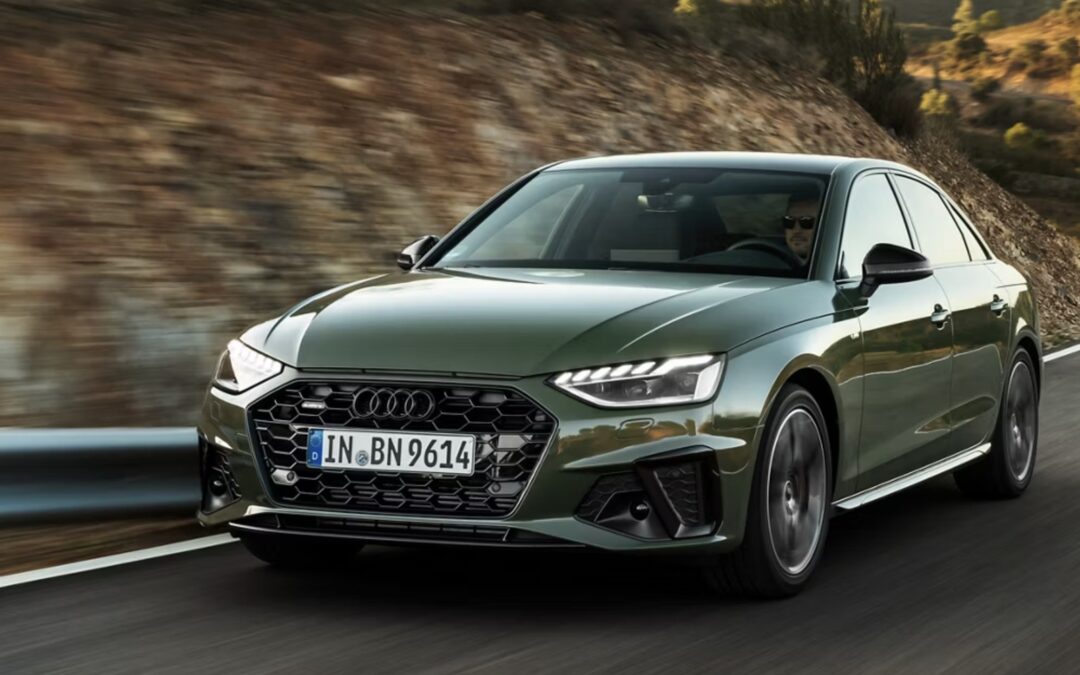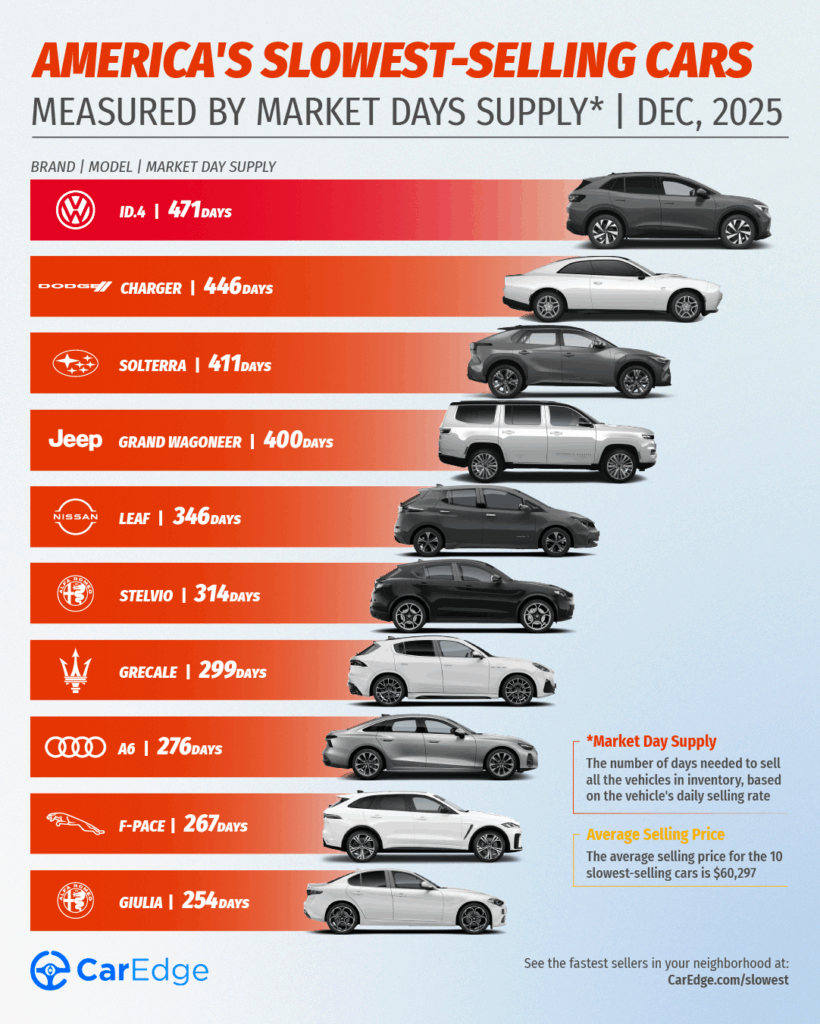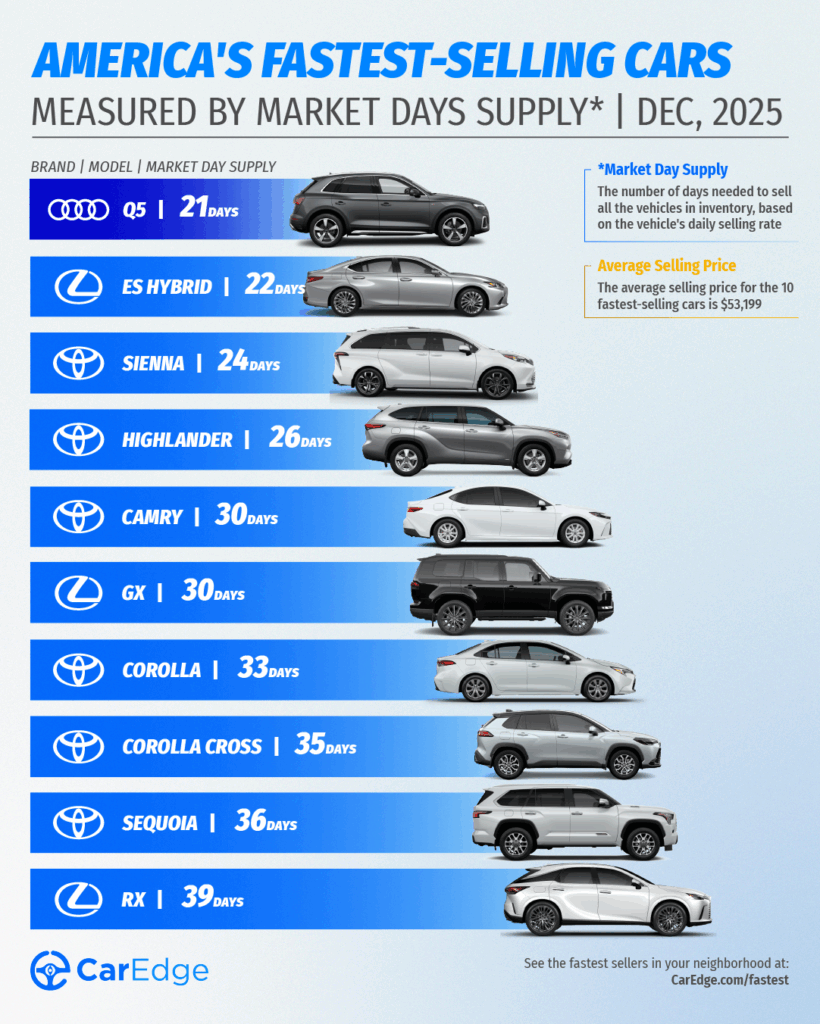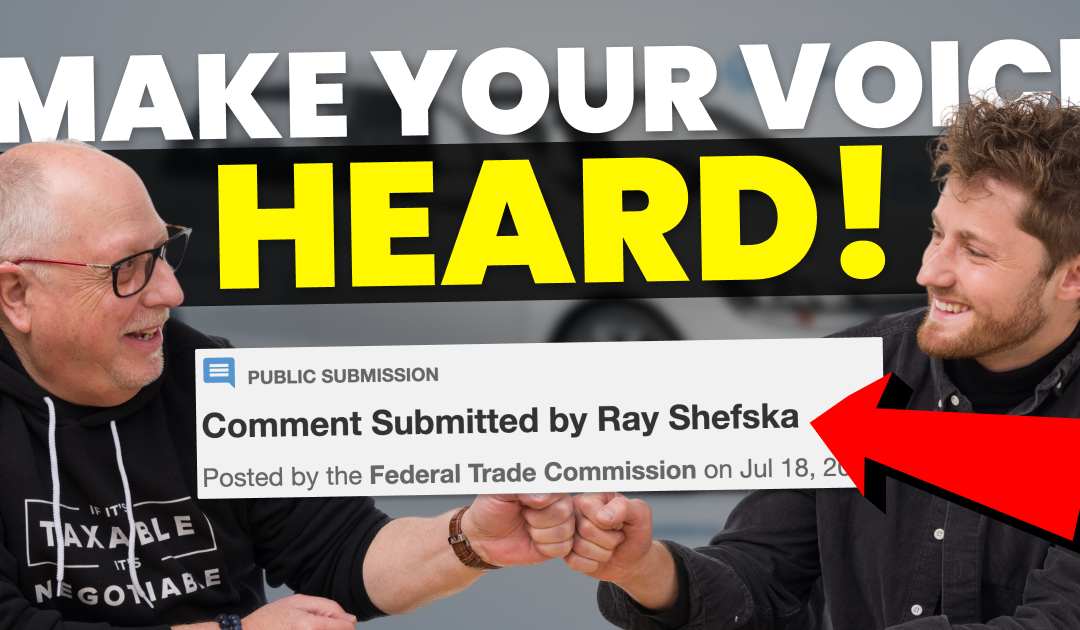CarEdge saved me over 4,500 dollars on a brand new Honda Pilot. I can't say thank you enough.
Price intelligence
Find a wide range of vehicle listings with market insights on new and used listings near you.


Help us personalize your CarEdge experience — it only takes a second.
Your answers help us personalize your CarEdge journey — we’ll follow up with tips and next steps that match your buying timeline.

The latest CarEdge Car Buyer Satisfaction Survey shows that an informed approach to car buying leads to a more satisfying and seamless experience, with 87% of respondents reporting high satisfaction with their purchases. This is significantly higher than industry averages and highlights the importance of buyer empowerment. From pricing expectations to dealership loyalty and specific aspects like trade-ins and add-ons, this report uncovers the ways that knowledge and preparation enhance the car-buying experience for consumers. These findings also reveal opportunities for the automotive industry to earn lasting customer loyalty.
👉 Download the complete report

Among 500 CarEdge Community members surveyed in October 2024, 87% reported being either “satisfied” or “very satisfied” with their vehicle purchase experience, far exceeding the 69% satisfaction rate reported by Cox Automotive’s latest industry survey. This higher satisfaction reflects the value of a well-informed buyer: 82% of CarEdge respondents felt fully prepared with the information needed to make an informed purchase decision.
The CarEdge Community’s sense of empowerment shows how buyer education can significantly impact satisfaction. Entering the dealership with an understanding of market conditions and financing options allows buyers to avoid common pitfalls, leading to more favorable interactions with dealers and less buyer’s remorse.
Price expectations play a crucial role in satisfaction. Among CarEdge survey respondents:
These results highlight how empowered buyers with transparent price expectations experience fewer surprises when it comes time to finalize the deal. Transparent, data-driven resources bridge the expectation gap, enabling more accurate price forecasting and helping buyers secure deals with greater confidence.

The CarEdge Car Buyer Satisfaction Survey revealed that dealership experiences play a pivotal role in fostering brand loyalty, with some car brands emerging as clear leaders in inspiring repeat business. Among the survey’s findings, BMW, Ram, and GMC ranked highest for dealership return rates, with more than three quarters of buyers indicating they would return to the same dealership for their next vehicle. This level of loyalty highlights a strong sense of trust and satisfaction among buyers of these brands, reflecting positively on dealership practices.
In contrast, brands with lower return rates underscore the importance of positive dealership interactions. Ford, Chevrolet, and Cadillac saw the lowest return intentions among survey respondents, with just one quarter of buyers expressing interest in purchasing from the same dealership again. These findings suggest that experiences such as transparency and pressure-free interactions play a major role in shaping loyalty
The dealership experience remains central to car buyer satisfaction. CarEdge’s survey reveals that:
While satisfaction levels with dealerships are high, a significant proportion of buyers remain cautious. This finding suggests that while most dealerships succeed in delivering positive experiences, more could be done to foster long-term loyalty by improving transparency, maintaining honest communication, and minimizing high-pressure tactics.
While satisfaction with the overall car-buying experience is high, certain areas continue to cause buyer frustration:
Improving transparency in these areas would lead to better buyer experiences, as customers feel less pressured and more in control of the transaction.
The CarEdge survey also revealed that satisfaction varies by powertrain. Among all respondents, 5.5% had purchased an electric vehicle (EV), and EV buyers reported a higher overall satisfaction score of 4.7 compared to 4.4 for internal combustion engine (ICE) vehicles.
Notably, 48% of EV buyers had purchased Tesla models, and 76% bought new EVs rather than used. The data suggests that EV buyers, especially those opting for new models, are generally more satisfied with their purchase experience.
The findings from the CarEdge Car Buyer Satisfaction Survey highlight the positive impact of a well-informed car-buying approach. Buyers who are equipped with clear expectations and market insights experience smoother transactions, greater pricing transparency, and higher satisfaction. This trend is beneficial for car buyers, dealerships, and the broader auto industry as transparency fosters trust and strengthens relationships.

Car buying can be overwhelming, but Deal School is here to help. CarEdge, led by father-son duo Ray and Zach Shefska, has updated the internet’s #1 free car buying course for 2024 and beyond. Designed to empower consumers, Deal School teaches buyers how to navigate the car buying process with confidence, saving money in the process.
👉 Enroll in Deal School for free
Deal School consists of four comprehensive units made up of 22 individual lessons, each designed to prepare you for every step of your car buying journey. Here’s a breakdown of what you’ll learn:
Each unit concludes with a quiz to test your knowledge and ensure you’re ready for real-life negotiations. With CarEdge’s Deal School, the car buying process is not only simplified, but consumers also gain the confidence to negotiate smarter deals, keeping more money in their pockets.
In addition to refreshed lessons with updated information and brand-new recorded lessons with Ray Shefska, Deal School 2024 introduces a free e-book filled with proven strategies to help you get the best deal on your next ride. This e-book is packed with insider knowledge, giving you a major advantage before stepping foot in a dealership. Print it off, take it with you, and shop for your next car with confidence.
CarEdge’s Deal School is the go-to resource for anyone looking to buy a car with confidence. You’ll learn everything from car-buying secrets to mastering the art of negotiation and understanding financing. Once you complete the course, you’ll be ready to secure the best deal on your next vehicle purchase.
👉 Sign up for Deal School today and start saving – It’s FREE!

Negative equity, or being “underwater” on a car loan, is becoming a growing issue for many drivers in today’s market. As vehicle prices soar and depreciation accelerates, more car owners are finding themselves owing more on their loans than their cars are worth. CarEdge, in partnership with Black Book, surveyed nearly 1,000 drivers to understand the extent of this problem in Q3 2024. Here are the key findings.
👉 Download the complete report

According to our survey, 31% of drivers who financed their vehicles are currently in negative equity. This number rises to 39% for vehicles purchased since 2022, indicating that newer car buyers are especially vulnerable. As vehicle prices increase and long loan terms become more common, the risk of being underwater is higher than ever.

A staggering 61% of surveyed drivers overestimate how much their cars are worth, with 17% believing their vehicle is worth at least $5,000 more than its true trade-in value. This disconnect can lead to unpleasant surprises when drivers try to trade in or sell their cars, often rolling over negative equity into their next auto loan and perpetuating the cycle.

Our data shows that loan terms directly impact vehicle equity. Car owners with 84-month loan terms are nearly $5,000 underwater on average, while those with 36-month loans typically have $12,340 in equity. Although longer loans reduce monthly payments, they also increase the likelihood of negative equity in the long term.

Electric vehicle owners are significantly more likely to be underwater. Of the EV owners we surveyed, 46% are currently in negative equity, with a median loan-to-value (LTV) ratio of 0.94—higher than the broader market’s 0.73. Luxury car brands like Tesla and BMW also see higher rates of negative equity compared to budget brands like Toyota and Honda.
As more drivers find themselves underwater on their car loans, the negative equity issue is poised to become a major challenge for car owners and the auto industry alike. While budget car buyers may fare better, EV and luxury car owners are disproportionately affected.
CarEdge remains committed to providing insights and tools to help consumers navigate today’s car market. To learn more about vehicle equity and stay informed on auto news and market trends, visit CarEdge for expert analysis and guidance. For more information about Black Book’s industry-leading data and analytics, visit BlackBook.com.

Navigating the current car market can be a daunting task, with its varying inventory levels and volatile prices. In this context, knowledge truly is power. A critical piece of this knowledge is understanding the Market Day Supply (MDS).
MDS is a measure of the number of days it would take to sell all of a particular model of car, based on the current sales rate, assuming no additional inventory is added. A high MDS suggests an oversupply, potentially giving buyers leverage for negotiation, while a low MDS might indicate a seller’s market, where negotiating could prove tougher.
Using CarEdge Pro, we identified which new cars have the most and least inventory available in December 2025.
Why does inventory matter to car buyers?
Inventory influences negotiability. When there’s a glut of cars, dealers will be more inclined to negotiate with you. Slim pickings? Not so much. This valuable insight can give you an edge in your car buying journey, helping you save money and avoid the hassle.
Here are the fastest and slowest-selling cars and trucks in America right now.
👉 Looking for SUVs, Trucks, or EVs? We’ve got it all.

These are the slowest-selling cars in the U.S. right now. Following the expiration of the federal EV tax credit in September, sales of fully-electric vehicles have fallen off a cliff. In fact, the three slowest sellers are all EVs. At the top of the list, the Volkswagen ID.4 is the slowest-selling car in America in December 2025. Five Stellantis models are the top 10, a sharp increase from last month.
The average selling price for the 10 slowest-selling cars is $60,297 in December 2025.
Here are the 10 slowest-selling new cars, in other words, the models with the most inventory today.
| Make | Model | Market Day Supply | Total For Sale | 45-Day Sales | Average Selling Price |
|---|---|---|---|---|---|
| Volkswagen | ID.4 | 471 | 1,371 | 131 | $48,036 |
| Dodge | Charger | 446 | 2,588 | 261 | $56,936 |
| Subaru | Solterra | 411 | 868 | 95 | $41,463 |
| Jeep | Grand Wagoneer | 400 | 1,254 | 141 | $96,557 |
| Nissan | LEAF | 346 | 960 | 125 | $31,076 |
| Alfa Romeo | Stelvio | 314 | 886 | 127 | $57,297 |
| Maserati | Grecale | 299 | 672 | 101 | $82,381 |
| Audi | A6 | 276 | 2,467 | 402 | $64,960 |
| Jaguar | F-PACE | 267 | 2,136 | 360 | $70,204 |
| Alfa Romeo | Giulia | 254 | 554 | 98 | $54,057 |
There’s BIG potential for deals on any of these cars, but only with negotiation know-how.
👉 See local fastest and slowest sellers [free tool]

On the other side of the coin, these are the fastest-selling cars today. This month, all but one of the fastest-selling cars and SUVs are Toyota models. Audi’s Q5 has jumped into first place as buyer’s anticipate an incoming shipment of 2026 models. There are only 500 Q5s for sale nationwide currently.
Three Lexus models and six Toyota models occupy the rest of the top 10. The Toyota Sienna, Camry, Highlander, and Corolla are all quick sellers, and are the toughest to negotiate.
If you’re shopping for any of these new cars in 2025, you’ll be up against stiff competition. The average selling price for the 10 fastest-selling cars is $53,199.
Here are the fastest-selling cars in America right now:
| Make | Model | Market Day Supply | Total For Sale | 45-Day Sales | Average Selling Price |
|---|---|---|---|---|---|
| Audi | Q5 | 21 | 546 | 1,198 | $59,913 |
| Lexus | ES Hybrid | 22 | 701 | 1,410 | $52,166 |
| Toyota | Sienna | 24 | 8,769 | 16,221 | $51,910 |
| Toyota | Highlander | 26 | 5,408 | 9,238 | $52,294 |
| Toyota | Camry | 30 | 41,926 | 62,424 | $34,952 |
| Lexus | GX | 30 | 2,505 | 3,708 | $80,358 |
| Toyota | Corolla | 33 | 28,271 | 38,163 | $25,446 |
| Toyota | Corolla Cross | 35 | 15,932 | 20,331 | $31,303 |
| Toyota | Sequoia | 36 | 4,269 | 5,375 | $83,585 |
| Lexus | RX | 36 | 7,307 | 9,189 | $59,257 |
👉 See local fastest and slowest sellers [free tool]
Ready to outsmart the dealerships? Download your 100% free car buying cheat sheets today. From negotiating a deal to leasing a car the smart way, it’s all available for instant download.
👉 Know before you buy! Estimate your future insurance costs with our free car insurance calculator. We’re here to help!

In June, the Federal Trade Commission proposed a new set of rules that would ban unscrupulous sales practices that are commonly employed at car dealerships. Among the notoriously anti-consumer practices targeted are the sale of products without benefit, bait-and-switch pricing, forced add-ons, and discriminatory practices for cash buyers.
There’s a reason the annual trustworthiness of profession poll from Gallup ranks car salespeople at the bottom; it’s not because every salesperson is bad, it’s because a few bad apples ruin the bunch. Over the years I have heard countless stories from our community of these aforementioned practices. Still, powerful dealer lobbies are combating the FTC proposal, and it’s become clear that they’re determined to defeat the proposal at all costs.
Fortunately, consumers have a real opportunity to have their voices heard. A public comment period is now open until September 2022, and we’re calling on you to share your opinion with the FTC. It’s clear that auto dealers are already amassing a unified position, and we need to do the same. If consumers show up in numbers, car buying may be transformed for the benefit of we, the people. Time is of the essence, as this narrow window leaves less than two months for the public to share their support.
On June 27th, The Federal Trade Commission proposed a new set of rules that would ban specific auto sales tactics commonly used by car dealers to take advantage of consumers. In an FTC proposal titled Motor Vehicle Dealers Trade Regulation Rule No. P204800, the following auto dealer practices are targeted:
FTC Bureau of Consumer protection Director Samuel Levine explained the reasoning behind the proposed rules. “As auto prices surge, the commission is taking comprehensive action to prohibit junk fees, bait-and-switch advertising and other practices that hit consumers’ pocketbooks. Our proposed rule would save consumers time and money and help ensure a level playing field for honest dealers.”
The average new car transaction is now $47,202, or 72% of the median household income in the United States. Bait-and-switch pricing, forced add-ons and dishonest financing tactics have all contributed to the average monthly car payment soaring to $730, 40% higher than the average payment just five years prior. With car prices at record highs, consumers are fed up with anti-consumer sales tactics that proliferate at many dealerships nationwide.
This is our chance as consumers to unite behind a proposed rule that could change car buying for the better unlike ever before. However, this battle is far from won.
The National Automobile Dealers Association, or NADA, is a nationally-recognized industry and political force that represents over 16,000 auto dealers nationwide. Every year, the NADA and its counterpart for independent dealers spend millions of dollars lobbying politicians to advance legislation that is pro-dealer, too often at the expense of the consumers the auto industry relies on. The power and influence of today’s car dealers can be traced directly to the NADA and NIADA.
Needless to say, the dealer lobby isn’t happy about the FTC’s proposed rules. In a letter to the FTC, the NADA characterized the proposal as unsupported, sloppy and inconsistent. How so? NADA senior vice president Paul Metrey dismissed the proposal as “woefully inadequate” because the regulation is unnecessary in his view, because it would address “things they can go after” already. It’s as if dealers and their powerful lobbies are fully aware of the anti-consumer sales tactics flourishing in the industry, but are content with pushing the limits of regulation until enforcement encroaches on their bottom lines.
Read the full NADA response here.
Another flawed argument promoted by the NADA is that complaints are few and far between. The FTC said it received more than 100,000 auto-related complaints in 2021. To counter that startling statistic, the NADA says there were 42 million new- and used-car sales last year. We all know that car buyers rarely have the time to seek out the procedures to submit a formal FTC complaint. Consumers have jobs, families, and other financial obligations on their minds. Imagine if one out of twenty dishonest car sales resulted in a formal complaint. In reality, reporting is likely even lower.
There’s no way of knowing just how widespread this problem is, yet every day our community of CarEdge members shares tales of shady dealership practices, and dishonest, anti-consumer tactics that cost them time and money. Whether it be comments on YouTube, or essays we receive via email; our millions of monthly viewers are fed up with the status quo, and demand change.
Industry media outlets are picking sides, and some heavyweights are clearly siding with dealer lobbies. Industry news outlet Automotive News published an editorial promoting the talking points disseminated by the NADA and NIADA. They too are calling for interested parties to submit comments during the narrow public comment period.
The FTC’s open commenting period is now open, and it will remain open until September 12, 2022. Anyone can submit a comment to voice support or displeasure with the proposal. In a classic David versus Goliath scenario, dealer lobbyists are facing off against consumers like you and I. With massive auto dealer lobbies and even media outlets calling for dealers to submit comments opposing the proposed rules, it’s up to all of us to make our voices heard. Submit a comment today on Regulations.gov. This should be a priority for all Americans who are sick and tired of car buying being synonymous with deception and dishonesty. We’ll keep you posted on the latest developments.
View Ray’s comment here, or read it below:
As someone who spent 43 years managing automobile dealerships and advocating for better enforcement of rules and regulations regarding dealer advertising and F&I practices, I strongly support your efforts to finally rid America of the unethical practices that many dealerships employ. Business decisions are made by dealerships everyday as to how to advertise the price of a vehicle online. Should we include the destination charge that is part of the MSRP in the price or should we disclose that in the small print? Should we disclose any dealer installed accessories or packages that the customer is expected to pay for in the advertised price or should we only disclose that once they have come into the dealership? Should we disclose all dealer and state fees or again wait until the customer has agreed to buy the car? How should we disclose our F&I offerings, or our rate markups for placing indirect loans? These are all business decisions that truthfully should not have to be made, full disclosure and transparency is not only what consumers want, it is what they are entitled to. You can read many consumer complaints in regards to this issue on our YouTube channel: https://www.youtube.com/c/CarEdge/ videos, just click on just about any video and read what consumers are saying on a daily basis.
One must question what is wrong with a society as a whole when everyone knows that consumers are taken advantage of everyday when purchasing a car or truck and everyone turns a blind eye to it. Law enforcement, consumer protection agencies, State Attorney Generals, the Federal Trade Commission and many other “consumer” protection organizations all know what is going on yet do next to nothing to correct it. The essence of commerce should not be “who can we take advantage of today” but rather how can we operate in a consumer respectful and honest manner. I believe the enactment of these proposals would bring us closer to the later and finally rid our society of the former.